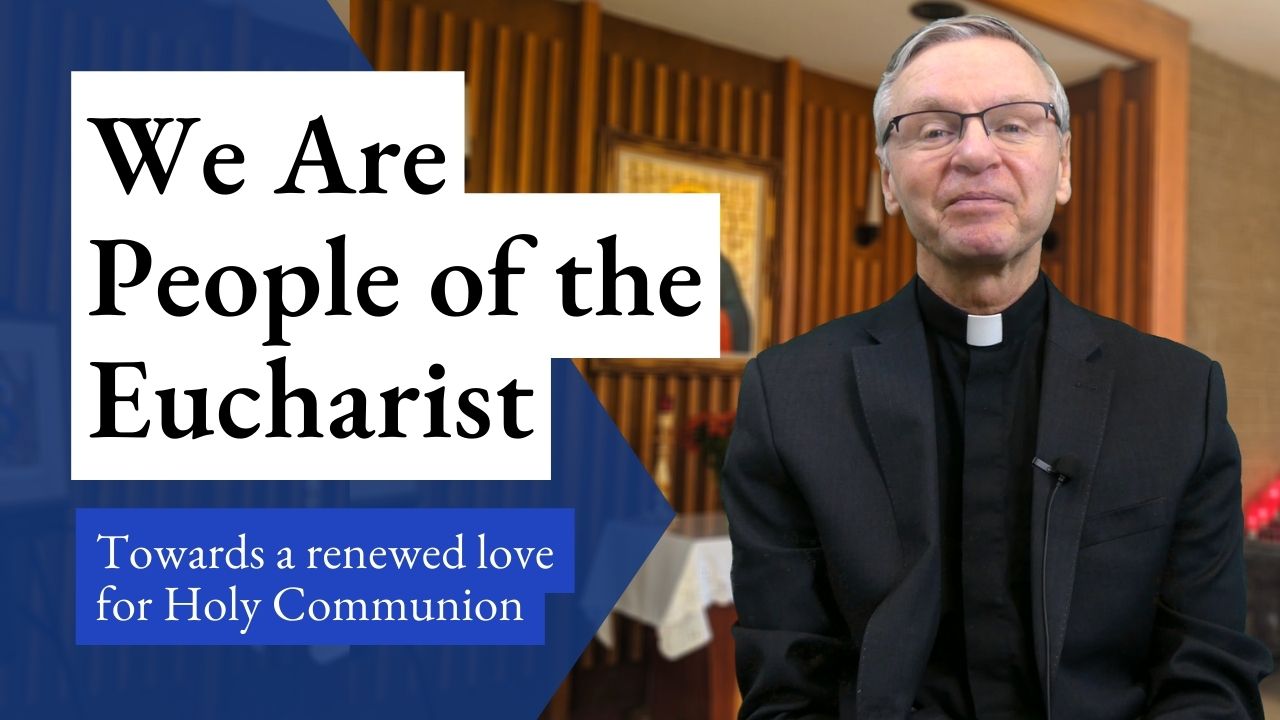We Are People of the Eucharist
Towards a renewed love for Holy Communion
Reflections on the Eucharist
by Bishop David Motiuk, Eparchy of Edmonton
May 2023
Jesus’ new command, “love one another”
We last reflected on how the Last Supper and the Washing of the Disciples’ Feet are part of one unifying moment, not two distinct actions. We partake of Jesus’ body and blood so that we might serve the needs of others. We eat so that we may serve.
This month, let us further our reflection on the Washing of the Disciple’s Feet, this sacrificial act of love and humility performed by Jesus given as an example not only to the disciples of his day but to us, Jesus’ disciples of today.
Jesus gives us a new command, a command to witness by love. “By this everyone will know that you are my disciples, if you have love for one another” (John 13: 35).
Yet, we live in a world that often tends towards individualism and self-centredness – me, myself and I; and “What’s in it for me?”
Blessed Pope John Paul II put it this way, “How can it be that even today there are still people dying of hunger? Condemned to illiteracy? Lacking the most basic medical care? Without a roof over their heads? (Apostolic Letter, At the Beginning of the New Millennium, no. 50).
Surely, we can do better. And we must.
The Church constantly reminds us that we are called to a new way of life, a life in common – communion, where we stand together – families, parishes, communities, one body in Christ, making this world a better place.
“Let us draw near to the mystical table in fear, and let us purify our hearts to receive the Bread [Jesus’ Body]. Let us remain with the Master to see him wash and dry the feet of his disciples. Let us in turn do the same, submitting to one another, and let us wash the feet of each other; for Christ told his disciples to do this….” (Matins, Ikos, Great and Holy Thursday).
Friends, I often give thanks to the Lord for your kindness and generosity towards others. You have taken to heart the essence of what it means to be a Christian, to love one another, the new command that Jesus entrusts to us in a special way in carrying on his ministry. For this I am grateful. Still, there is more work to be done.
To be people of the Eucharist is to “eat so that we may serve.” In other words, the work of the Divine Liturgy (Mass) does not end when we leave our churches on Sunday. It only begins. The work of the Divine Liturgy spills out into the streets and into the homes of our families, friends, and neighbours, and beyond, to strangers in near and distant places.
Homework. We who have been transformed into the Eucharist are called to be Eucharist one for another. How can we concretely live this out? I suggest that each time you attend Divine Liturgy and have received Jesus’ body and blood that immediately upon exiting the church you seek out one person on your way home – someone known to you or a complete random person – and see Jesus in that person and perform some random act of kindness: a simple smile, a hello, a good morning, some money for a coffee or a meal, a phone call to a forgotten friend or relative, and things of the sort. In so doing, you will live out Jesus’ command to love one another; you will have washed their feet.
We are people of the Eucharist.

